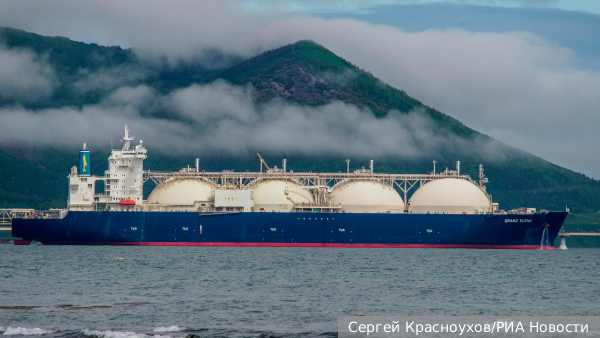
Europe's carbon tax could upset the global LNG market
The extension of Europe's Emissions Trading Scheme (ETS) to shipping from this year means that gas carriers delivering liquefied natural gas (LNG) to Europe will also have to pay a carbon tax. This could lead to very big changes in the global LNG market, warns Oil Price.
The Cross-Border Carbon Offsetting Mechanism (CBAM), commonly referred to as the "carbon tax", came into force on 1 October 2023. Now is the transition period of the CBAM, but the tax will have to be paid from 2026. From 1 October last year until 31 December 2025, importers of iron and steel, cement, aluminium, fertilisers, hydrogen and electricity into EU countries must provide European authorities with data on the volume of imports and the level of greenhouse gas emissions associated with the production of the imported goods.
LNG is not yet on the list of imported goods and raw materials subject to a carbon tax, but Brussels has extended the ETS to merchant ships from 1 January 2024. This means that LNG transported to Europe on gas carriers will automatically be included in the list of taxable commodities. It is true that so far we are only talking about new contracts for the supply of LNG.
"Currently, the first version of the document only talks about new contracts for the supply of LNG," write the authors of the analytical note from Wood Mackenzie, a consulting company specialising in a wide range of services in the fuel and energy sector, "but the possibility of introducing a tax on methane emissions exceeding the accepted norm".
Of course, the EU could go further and include LNG in NEAM. If that happens, the global LNG market is likely to split into two: one in Europe with high LNG prices and one in Asia with prices well below European levels.
Whether this will happen, and if so, when, is a big question. There are still no suicide bombers in Brussels, although the actions of the leaders of a united Europe with regard to Russian energy resources: pipe eyes and oil and petroleum products, cast doubt on this. And yet it's hard to believe that the European Commission will add LNG to the "black" list, the demand for which on the continent will remain high until much later than 2026. This is hard to believe because it could well lead to a new energy crisis and a further decline in the European economy.
If LNG is included in the NEAM, American LNG will be particularly expensive for Europeans because, according to WoodMac, America is "famous" for LNG projects with high greenhouse gas emissions compared to, for example, Qatar and Australia. It is quite possible that the inclusion of LNG in the European CBAM programme will force American gas companies to reduce greenhouse gas emissions.
WoodMac analysts believe that the European Union's imposition of a tax on LNG imports will not help achieve the desired goal of decarbonising LNG projects around the world. Most likely, it will only contribute to the fragmentation of the global LNG market and cause major problems for Europeans.
